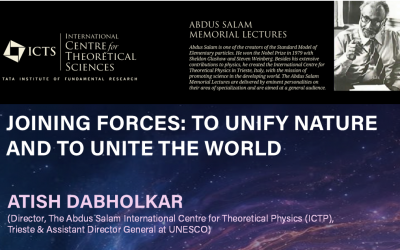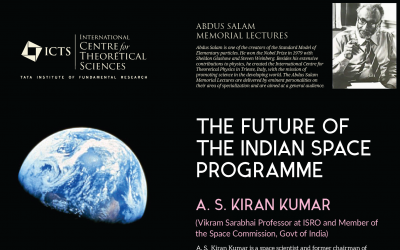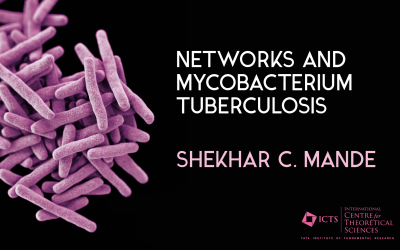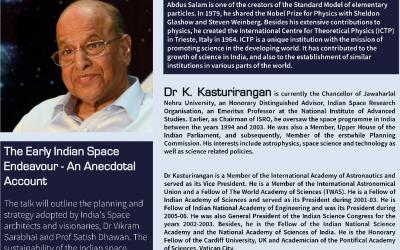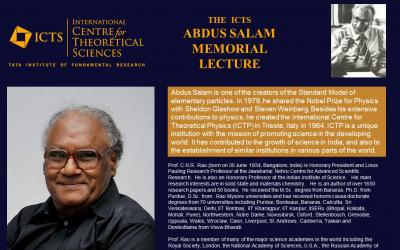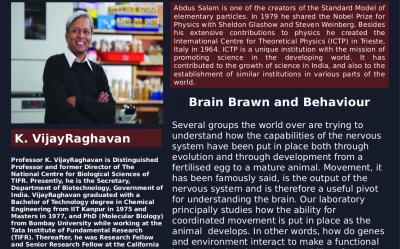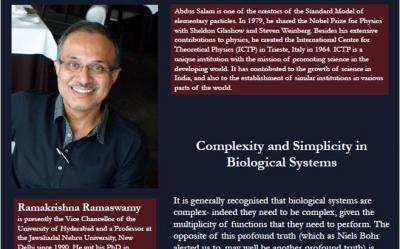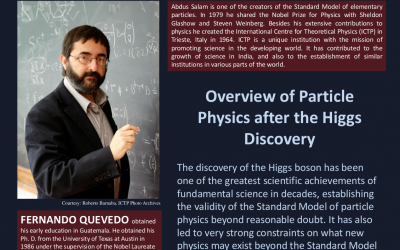Atish Dabholkar (The Abdus Salam International Centre for Theoretical Physics (ICTP), Trieste & Assistant Director General at UNESCO)
23 February 2026, 16:00 to 17:30
Chandrasekhar Auditorium, ICTS, Bengaluru
Abstract: The lecture will crisscross between two themes of unification of fundamental interactions and global collaboration for science with the following focus: Unification of Forces : The remarkably simple and precise current understanding of all fundamental forces of nature from gravity to...more


